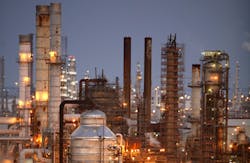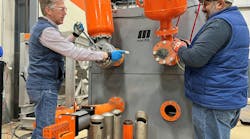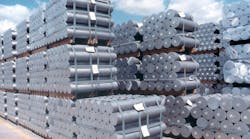Oil & gas giant BP reached an agreement in October to sell its Texas City, Texas, refinery and a portion of its retail and logistics network in the Southeast U.S. to Marathon Petroleum Corp. for $2.5 billion.
While the Texas City sale is part of the $38 billion divestiture announced by BP in the wake of the Deepwater Horizon disaster, analysts noted that major oil companies are casting off refining operations, finding them more volatile and subject to competition from China and India than their upstream operations.
“Today’s announcement is the second major milestone in the strategic refocusing of our U.S. fuels business,” says Iain Conn, chief executive of BP’s global refining and marketing business. “Together with the sale of our Carson, California refinery, announced in August, the divestment of Texas City will allow us to focus BP’s U.S. fuels investments on our three northern refineries, which are crude feedstock advantaged, and their associated marketing businesses.”
With today’s agreement the total value of the divestments that BP has agreed to since the beginning of 2010 is now over $35 billion. BP expects this total to reach $38 billion by the end of 2013.
Subject to regulatory and other approvals, Marathon Petroleum will purchase the 475,000 barrel per day refinery, associated natural gas liquids pipelines and four marketing terminals in the Southeast U.S. BP will also assign certain branded jobber contracts supplying approximately 1,200 retail sites in Tennessee, Mississippi, Alabama and Florida, which could be supplied by the refinery.
BP will remain a significant retailer of fuels in the U.S., with approximately 8,000 BP and ARCO-branded sites in the Midwest, Pacific Northwest and along the East Coast. BP anticipates the transaction will close by early 2013.
BP announced plans to divest its Carson and Texas City refineries in February 2011 as part of a major strategic refocusing of the company’s global refining portfolio.
The Texas City refinery became part of BP with the 1998 merger with Amoco. It is a large, highly complex refinery with a nameplate 475,000 barrels per day of refining capacity. The refinery employs some 2,150 BP staff and contractor numbers can vary between 1,000 and 3,000 each day.
The adjacent South Houston Green Power cogeneration facility is an integral part of the power infrastructure at the refinery and is included in the sale.
BP’s Texas City Chemicals complex adjacent to the refinery is an independent facility and has been a key part of BP’s global petrochemicals portfolio and is not included in the sale. BP’s petrochemicals plant will continue to have long-term commercial arrangements with the Texas City refinery.
BP has now fallen to fourth amongst global oil & gas companies in revenues.
On its Oct. 30 third quarter conference call, chief executive Bob Dudley indicated the company was working through the first set of questions it has received from the FTC regarding the asset sale.
On the call, Dudley also discussed the company’s recent announcement that it will get $12 billion as part of a deal to sell its stake in Russian venture TNK-BP and take a stake in state-controlled Rosneft. Rosneft is acquiring TNK-BP for a total $56 billion.
The other major line of questioning on the call was in regard to oil rig counts in the Gulf of Mexico. Dudley outlined BP’s plans beyond 2014 for the first time, with a focus on oil and exploration over fuel refining and gas, and lifted BP’s dividend by 12.5 percent to 9 cents a share, the second hike since the Deepwater Horizon spill interrupted payouts.


